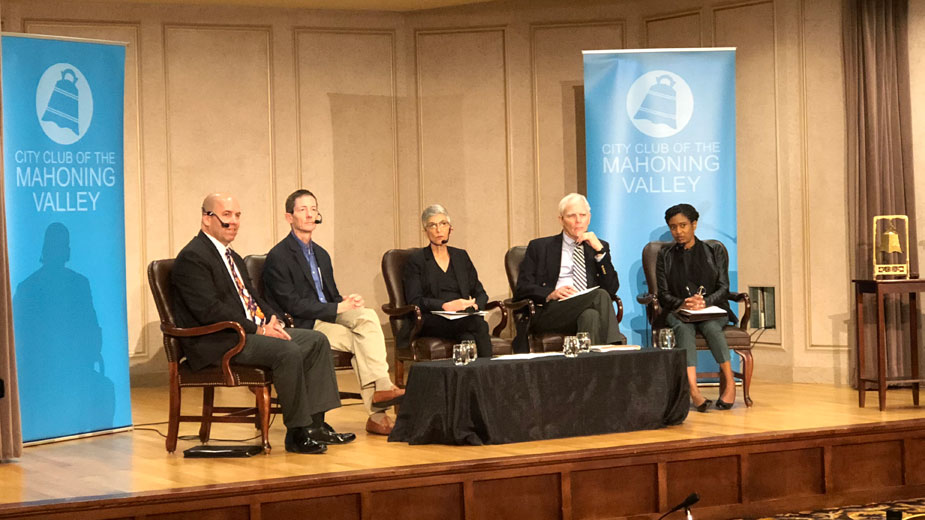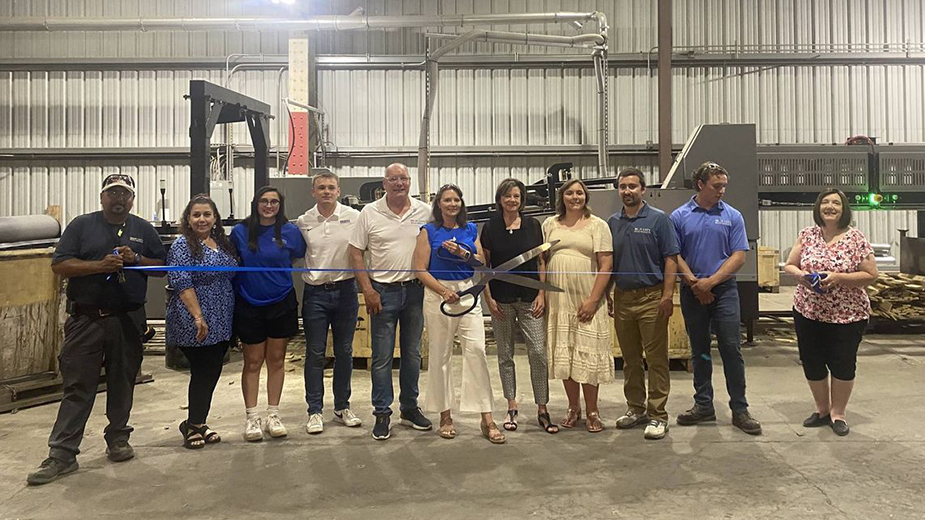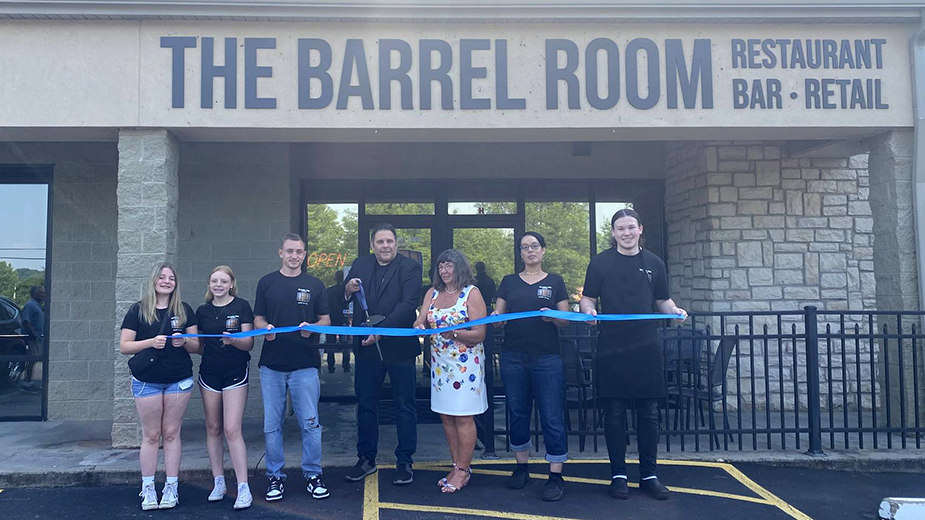City Club: Aligning Education, Training Key to Filling Jobs
YOUNGSTOWN, Ohio – Panelists from Washington, D.C. and as close as the Mahoning Valley led a conversation on possible solutions to help the political parties work together to create jobs, obtain jobs and strengthen families and communities in Ohio. The discussion, “Expanding Opportunity for the Working Class,” took place last night at Stambaugh Auditorium and was hosted by the City Club of the Mahoning Valley.
James Dignan, president and CEO of the Youngstown/Warren Regional Chamber, spoke on his goal that prime-age workers be engaged in the workforce. He noted that 20% of workers in the area migrate elsewhere to find jobs. Inability and disability are two factors for the lack of workers locally, as well as the fact that 25% of open jobs require certifications or higher education. Dignan hinted at new state incentives to bring in new jobs, but stressed workers first need training. The main problem is getting the qualified workers matched with the right job, he said.
Stephanie Shaw, executive director of Eastern Ohio Education Partnership, emphasized the need to increase education and job training opportunities without increasing spending. Eastern Gateway Community College recently began to take part in the Google IT Certification process, which allows students to get certification from Google and have access to scholarships, she noted.
“90% of kids are graduating [high school], but less than 50% are going to college,” Shaw said. More funding for education before college, such as trade schools, may help fill the gap between high school and university levels, she said.
“The American dream is fading, ” warned Bruce Reed, co-chairman at the Aspen Institute’s Future of Work Initiative who served with the Clinton and Obama administrations. Global competition, innovation and automation have made decreased opportunities for the working class. Reed wants to expand the earned income tax credit, especially for families, and provide incentives to raise wages.
“Everyone should have the chance to work toward a better job or to work in a good job,” Reed said. “Right now, there’s a lot of emphasis on short returns and not enough on long-term payoff.”
As president and CEO of Opportunity America, Tamar Jacoby has seen the necessity for workers to be trained in skills that match up with an area’s available jobs. She wants to see more funding for college alternatives, such as trade and technical schools, as families wonder if college is worth it because of the amount of debt most students end up with.
Jacoby urges more funding and scholarships for alternative schools rather than for universities. She also wants to work on funding newer programs and schools, using quality control to ensure they are good programs, and ultimately “use policy to spur a new alternative.”
The final panelist was Ron Haskins, senior fellow in economic studies at the Brookings Institution, a Washington-based think tank. He advocated that the states be given more freedom to use federal funds for community development.
“The 2016 elections showed problems that have been building for years,” Haskins said. “We should find ways to give more flexibility to the states. The states know their own democracy better.”
Since 1980, there has been a continuous decline of the males who work, and a huge rise in drug addiction. The problem of showing up drug free to the workplace was a topic of concern at the event.
Said the Regioinal Chamber’s Dignan, “18 out of 25 candidates fail their drug screening. Right now, I know two family-owned small businesses who are having trouble finding capable and able workers.”
Pictured: Youngstown/Warren Regional Chamber CEO James Dignan, Aspen Institute Future of Work Initiative co-chairman Bruce Reed, Opportunity America President and CEO Tamar Jacoby, Brookings Institutions’ Ron Haskins, and Eastern Ohio Education Partnership Executive Director Stephanie Shaw.
Copyright 2024 The Business Journal, Youngstown, Ohio.



